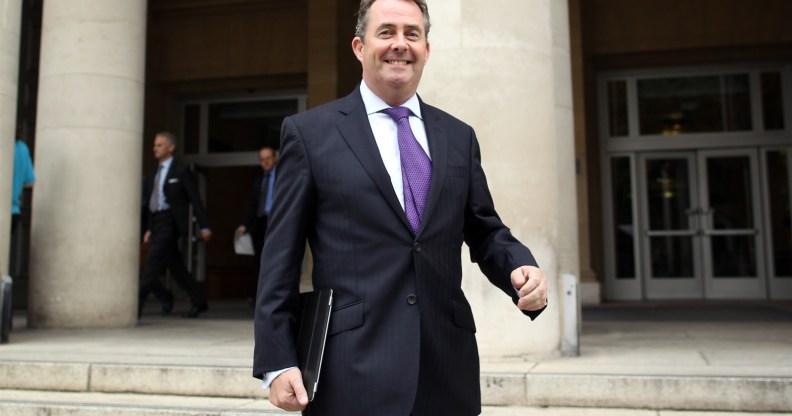Anti-LGBT Tory Liam Fox running for Conservative leadership

Former Tory Defence minister Dr Liam Fox is launching a bid to become Prime Minister.
The Conservative Party is currently in the process of nominating candidates to replace David Cameron as party leader.
Dr Liam Fox threw his hat in the ring today, joining Work and Pensions Secretary Stephen Crabb in officially declaring his intent to run. Other rumoured candidates include Home Secretary Theresa May, lead Brexit campaigner Boris Johnson, and Education Secretary Nicky Morgan.
The MP for North Somerset served as Secretary of State for Defence from 2010. He was forced to quit in 2011 over allegations about the nature of his relationship with “close friend” Adam Werritty.
Dr Fox, who tied the knot with wife Jesme Baird in 2005, faced an investigation after reports that Mr Werritty had joined him on 19 official overseas trips, and allegations Mr Werritty had improper access to the Ministry of Defence. Fox denied wrongdoing but admitted “errors of judgement” in mixing his professional and personal loyalties.
The Member of Parliament also has one of the worst voting records on LGBT rights among the candidates running, having never voted in favour of any LGBT legislation during his time in Parliament.
Dr Fox voted strongly against same-sex marriage and gay adoption rights, while he was absent on votes on civil partnerships, the abolition of Section 28, gender recognition, an equal age of consent and the Equality Act.
Ahead of the vote on same-sex marriage in 2013, Fox claimed that the proposals were “absurd” and “divisive”.
The former minister said at the time gay marriage that “smacks of a form of social engineering of which Conservatives should be instinctively wary”.
He told a PinkNews reader at the time: “Proponents of same-sex marriage argue that any change is simply a matter of equal rights. I disagree with them.
“I believe that this argument fails to understand the full complexities of the social issues involved.
“If this were simply an argument about righting a wrong, with no other consequences, it would not be creating so much division.”
He claimed at the time: “It proposes to change the definition of marriage for all, for the perceived benefit of a much smaller number.
“Unlike civil partnerships it is not even clear that there is much demand for the change. I have not heard any of the gay friends that I have clamour for same-sex marriage in the way that they demanded the right for civil partnerships.”

